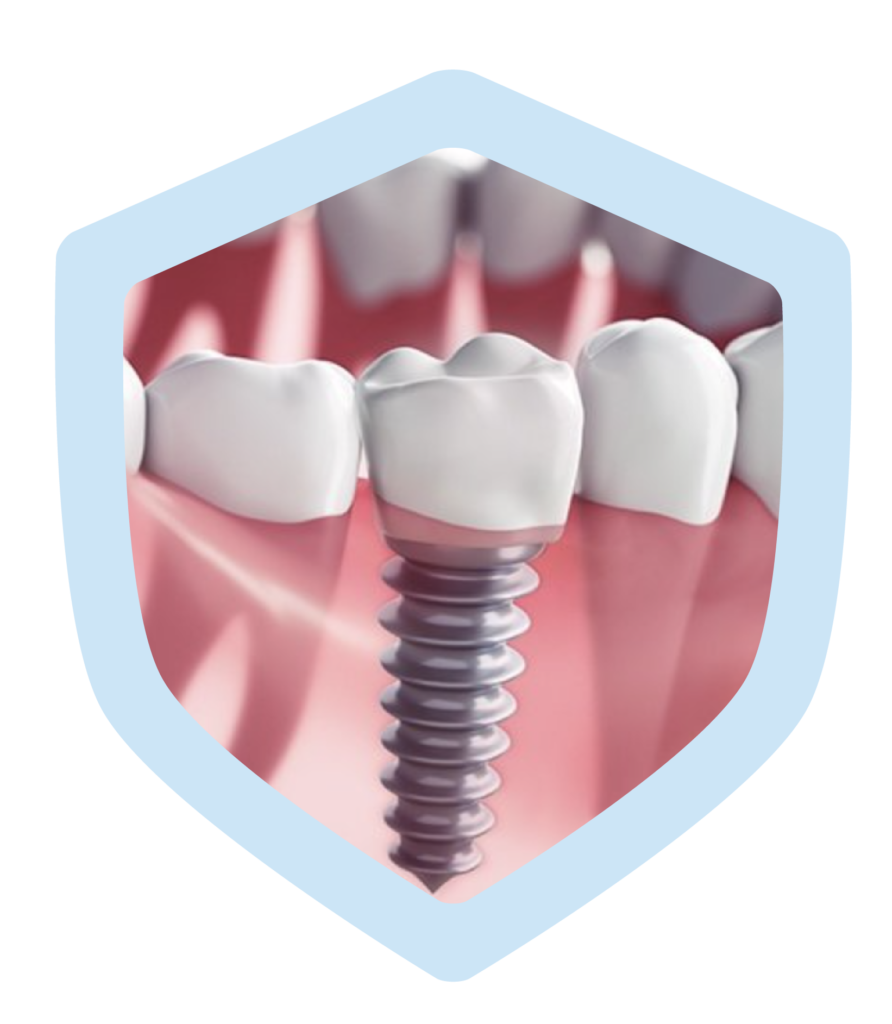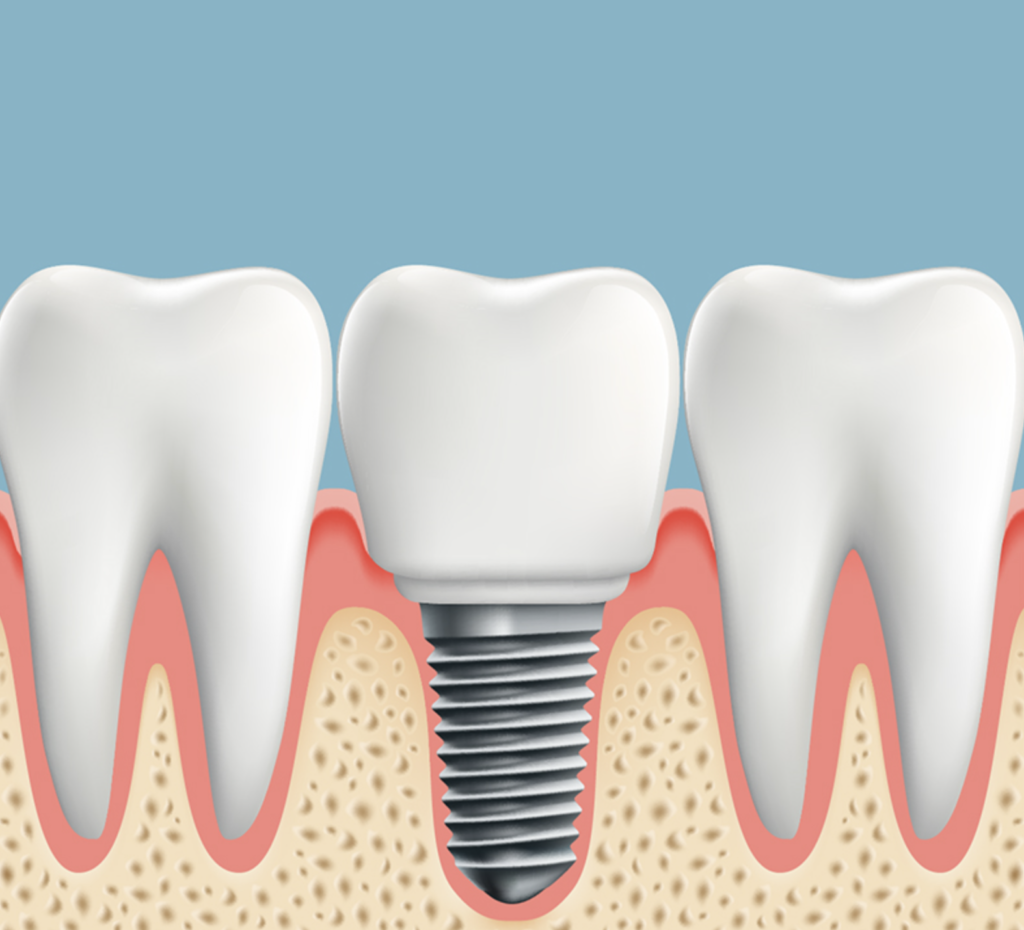A dental implant is required when you have a tooth extracted that leaves a gap in your mouth, this gap will eventually close.
The hole where the tooth root is will eventually collapse as there’s nothing to support the bone around it. The space between the teeth may be closed when teeth either side of the gap move over inside.
These will affect your ability to chew and eat correctly and in the future can cause more damage to other healthy teeth.



It can be used a single crown to make the implant a replacement for a single tooth.
A bridge of 3-4 teeth can be mounted on one or two implants to restore several missing teeth.
Even a full upper or lower denture can be supported on four implants per arch to restore every missing tooth.
A dental implant is a titanium screw that gets implanted into the jaw where the tooth’s root used to be, and becomes an artificial root.
The titanium it’s bio-compatible whereby the tissue will form around the metal without inflammation or rejection of the implant.
The first step is to remove the tooth or teeth that need to be replaced, if they haven’t been taken out yet.
After that, the implant is placed into the jaw. Once the gum is sewed over the top, the area is ready to heal and the bone eventually will fuse to the implant.
When the implant is set in place, the gum will be opened and a connecting point or abutment will be attached to the implant.
At the end, the restoration is connected to the abutment.
This process can take several weeks to months; it will depend on the number of implants, health of the mouth, and available bone volume.
Implants are convenient for almost everyone with a healthy mouth and enough bone volume.
There’s situations that can cause difficulties to the procedure:
Too little bone volume. This can be repair with bone augmentation or grafting in certain cases.
Smoking is never good for any major oral surgery, as it increases the risk of gum disease and weakens the gums.
Some medications and medical conditions could make surgery a risk and also be determinant to whether you can get implants. Consult with your dentist if you have doubts.
Unlike natural teeth, dental implants are not susceptible to dental disease such as decay; however, the health of the gums is vital to maintaining lasting implant success. Conscientious home care by the patient and regular professional cleanings and check-ups are essential elements for dental implant sustainability. Each patient is different, and success relies upon diagnosis and planning, medical history, and a variety of other factors.
No, dental implants are fixed solidly in the bone and allow teeth to be replaced in a manner that is closest to natural teeth.
Actually implants are most popularly used in patients who wear full dentures or partial dentures.
Dental implants can be used to provide retention and support for a removable implant overdenture, which basically snaps on the implants! Therefore the partial or full denture does not move and reduces the dependency on denture adhesives/denture glue.
Or, dental implants can be used for a fixed denture, where a patient’s dentures are fixed/bolted to the implants through titanium components.
Only the dentist can remove this from the mouth.
If you have a question that wasn’t addressed above, our staff is happy to chat with you.
We’re also here to explain any of the above processes and procedures in greater detail.

From USA
From Mexico